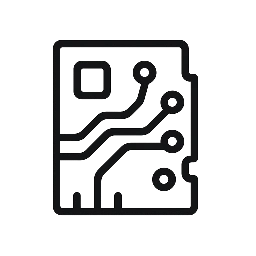May 30, 2025 – The term “Artificial Intelligence” once conjured images of sentient robots and dystopian futures, largely confined to the realm of science fiction. Today, AI is no longer a far-off concept. it’s an increasingly integral part of our daily lives, subtly and overtly reshaping our world. As we stand at this technological inflection point, the question isn’t if AI will define our future, but how. The coming decades promise a transformation so profound that it may rival the industrial or digital revolutions in its impact on human civilization.

The Symphony of Everyday Life, Conducted by AI
Imagine waking up not to a blaring alarm, but to a gentle shift in your room’s lighting and temperature, orchestrated by an AI that knows your sleep cycle and the day’s schedule. Your AI home assistant has already optimized the energy consumption of your smart home, brewed your coffee to your preferred strength, and curated a news feed based on your interests and priorities.
Transportation will likely be unrecognizable. Autonomous vehicles, guided by sophisticated AI networks, will navigate our cities with enhanced safety and efficiency, freeing up commute time for work, leisure, or learning. Logistics and delivery systems will become hyper-efficient, with AI optimizing routes and predicting demand with uncanny accuracy.
Healthcare is poised for a paradigm shift. AI-powered diagnostics will detect diseases like cancer at their earliest, most treatable stages, often before human doctors can. Personalized treatment plans, tailored to an individual’s genetic makeup and lifestyle by AI algorithms, will become the norm. AI-assisted robotic surgery will offer unprecedented precision, while virtual health assistants provide 24/7 monitoring and support, especially for the elderly or those with chronic conditions.
The Evolving Landscape of Work and Skill
The nature of work is undeniably transforming. AI will automate many routine and repetitive tasks across industries, from manufacturing and data entry to customer service and even aspects of legal or financial analysis. This will undoubtedly lead to job displacement in some sectors, a challenge that societies globally must address proactively.
However, this automation also heralds the creation of entirely new roles. Demand will surge for AI specialists, data scientists, AI ethicists, and professionals who can design, manage, and maintain these intelligent systems. More profoundly, AI will become a collaborative partner. Imagine architects working with generative AI to design sustainable buildings, scientists using AI to accelerate research into climate change solutions, or educators leveraging AI to create personalized learning paths for every student. The emphasis will shift from rote tasks to uniquely human skills: critical thinking, creativity, emotional intelligence, and complex problem-solving. Lifelong learning and adaptability will become not just advantageous, but essential.
Societal Structures in Flux: Challenges and Opportunities
The widespread adoption of AI will necessitate a re-evaluation of many societal structures. Economic models may need to adapt to a world where labor dynamics are fundamentally altered. Discussions around concepts like Universal Basic Income (UBI) are likely to intensify as societies grapple with wealth distribution in an AI-driven economy.
Ethical considerations will be paramount. How do we ensure AI algorithms are free from bias? Who is accountable when an AI makes a harmful decision? How do we protect privacy in a world awash with data, the lifeblood of AI? Robust regulatory frameworks, developed through global cooperation, will be crucial to navigate these complex ethical terrains and ensure AI develops in a way that is safe, fair, and beneficial to all.
Education systems will need to evolve rapidly, focusing less on memorization and more on fostering the skills that AI cannot replicate. AI tutors could provide individualized support, adapting to each student’s pace and learning style, potentially democratizing access to quality education. In governance, AI could enhance the efficiency of public services, optimize resource allocation, and even aid in urban planning and disaster response.
A Renaissance of Creativity and Innovation
Far from stifling human creativity, AI could unlock new frontiers of artistic expression and scientific discovery. AI tools can assist artists in generating novel visuals, compose music in new styles, or help writers overcome creative blocks. In science, AI’s ability to analyze vast datasets and identify complex patterns will accelerate breakthroughs in fields like medicine, materials science, and environmental sustainability. Imagine AI algorithms sifting through astronomical data to find new exoplanets or modeling complex climate scenarios with greater accuracy than ever before.
The Enduring Importance of the Human Element
As AI becomes more capable, the qualities that make us uniquely human will become even more valuable. Empathy, compassion, intuition, and the ability to build meaningful connections will be skills that AI cannot easily replicate. In an increasingly automated world, the human touch in areas like caregiving, teaching, and leadership will be highly prized.
The rise of AI also prompts us to reflect on our own purpose and what we value. With more tasks automated, humanity may find itself with more time for leisure, personal development, community engagement, and the pursuit of passions. The challenge will be to cultivate a society where these pursuits are accessible and valued.
Navigating the Path Forward
The future with AI is not a predetermined script. It is a landscape of immense possibilities, both exciting and daunting. The choices we make today – as individuals, communities, and nations – will shape this future. Prioritizing ethical development, investing in education and reskilling, fostering global cooperation, and ensuring that AI serves human values are critical steps.
The journey ahead will require careful navigation, continuous dialogue, and a willingness to adapt. If we approach the age of AI with foresight, responsibility, and a commitment to human well-being, we can harness its transformative power to create a more prosperous, equitable, and sustainable world for generations to come. The dawn of this new era is upon us; it is our collective responsibility to ensure it is a bright one.

Leave a Reply